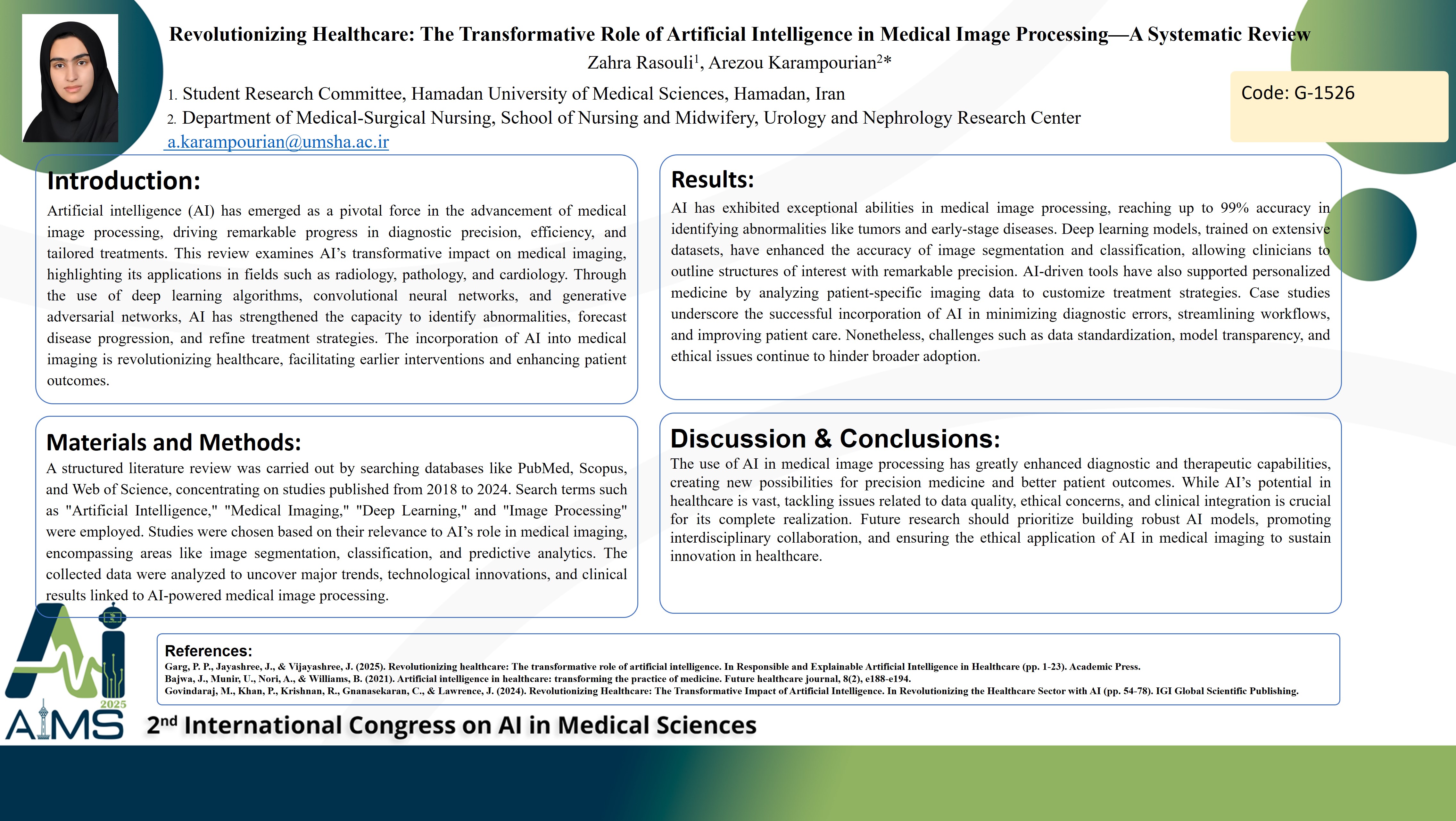Revolutionizing Healthcare: The Transformative Role of Artificial Intelligence in Medical Image Processing—A Systematic Review
Code: G-1526
Authors: Zahra Rasouli ℗, Arezou Karampourian *
Schedule: Not Scheduled!
Tag: Biomedical Signal Processing
Download: Download Poster
Abstract:
Abstract
Background and aims: Artificial intelligence (AI) has emerged as a pivotal force in the advancement of medical image processing, driving remarkable progress in diagnostic precision, efficiency, and tailored treatments.This review examines AI’s transformative impact on medical imaging, highlighting its applications in fields such as radiology, pathology, and cardiology.Through the use of deep learning algorithms, convolutional neural networks, and generative adversarial networks, AI has strengthened the capacity to identify abnormalities, forecast disease progression, and refine treatment strategies.The incorporation of AI into medical imaging is revolutionizing healthcare, facilitating earlier interventions and enhancing patient outcomes. Method: A structured literature review was carried out by searching databases like PubMed, Scopus, and Web of Science, concentrating on studies published from 2018 to 2024. Search terms such as "Artificial Intelligence," "Medical Imaging," "Deep Learning," and "Image Processing" were employed.Studies were chosen based on their relevance to AI’s role in medical imaging, encompassing areas like image segmentation, classification, and predictive analytics.The collected data were analyzed to uncover major trends, technological innovations, and clinical results linked to AI-powered medical image processing. Results: AI has exhibited exceptional abilities in medical image processing, reaching up to 99% accuracy in identifying abnormalities like tumors and early-stage diseases. Deep learning models, trained on extensive datasets, have enhanced the accuracy of image segmentation and classification, allowing clinicians to outline structures of interest with remarkable precision. AI-driven tools have also supported personalized medicine by analyzing patient-specific imaging data to customize treatment strategies.Case studies underscore the successful incorporation of AI in minimizing diagnostic errors, streamlining workflows, and improving patient care.Nonetheless, challenges such as data standardization, model transparency, and ethical issues continue to hinder broader adoption. Conclusion: The use of AI in medical image processing has greatly enhanced diagnostic and therapeutic capabilities, creating new possibilities for precision medicine and better patient outcomes. While AI’s potential in healthcare is vast, tackling issues related to data quality,ethical concerns, and clinical integration is crucial for its complete realization. Future research should prioritize building robust AI models,promoting interdisciplinary collaboration,and ensuring the ethical application of AI in medical imaging to sustain innovation in healthcare.
Keywords
Artificial Intelligence, Medical Imaging, Image Processing
